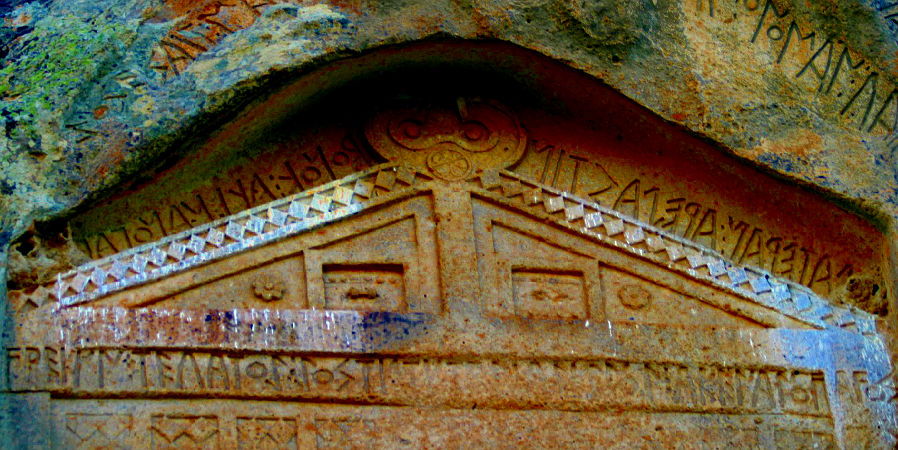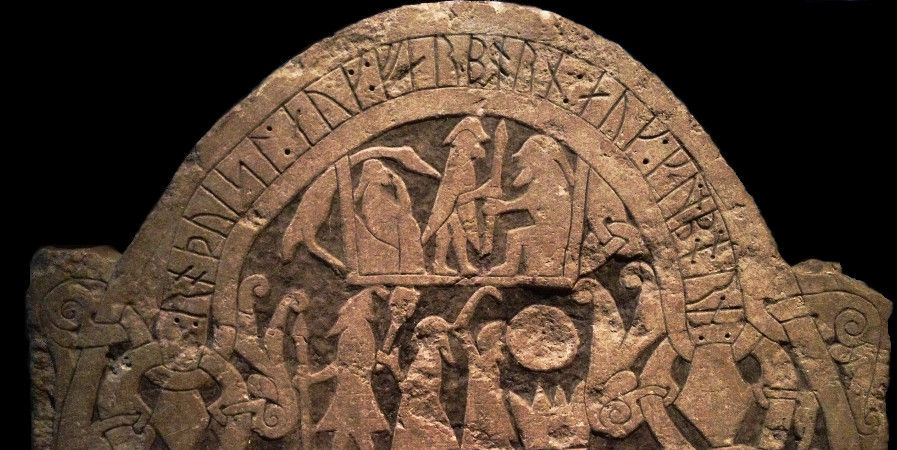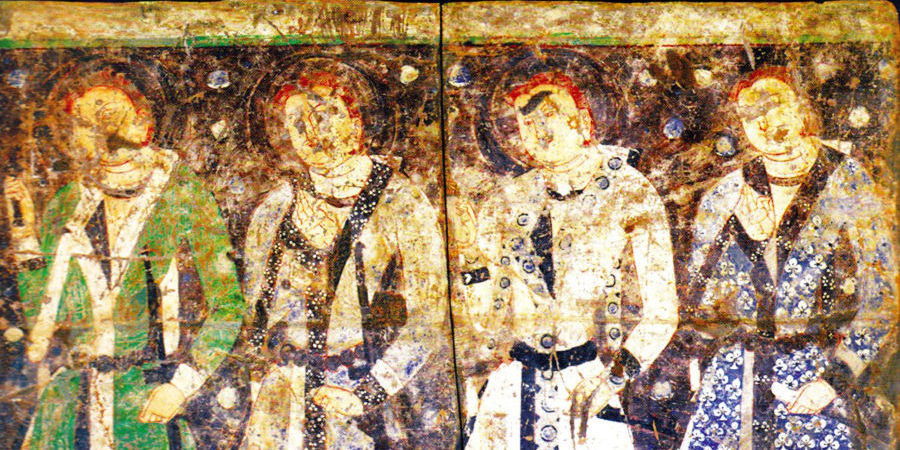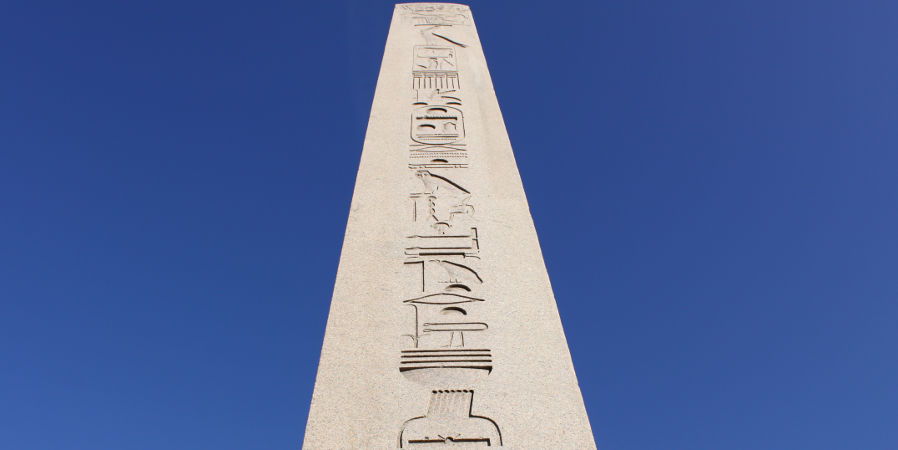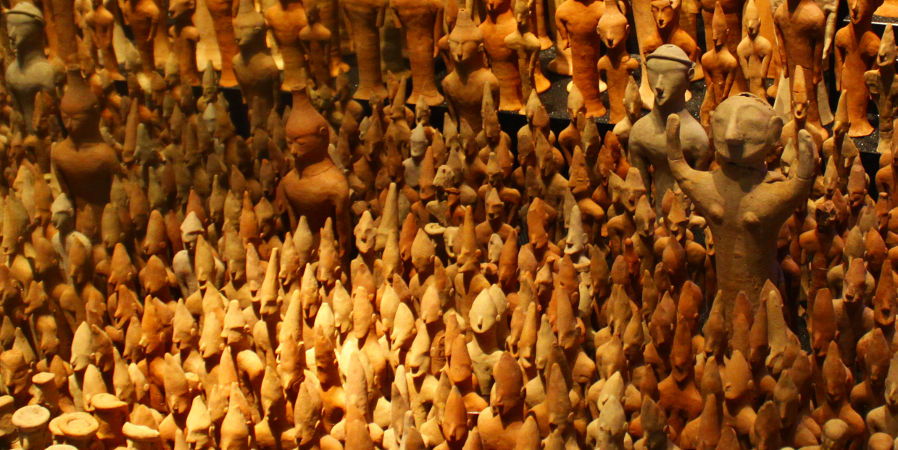Welcome to Palaeolexicon!
Palaeolexicon is a tool for the study of ancient languages. Its name derives from the Greek words palaeo meaning 'old' and lexicon meaning 'dictionary'. If you're interested in the ancient world and its languages, then this is a site for you. It is a place for people who love historical linguistics and ancient history.
2020-12-23 - The Hurrian dictionary is now available

A new year is soon here and we're bringing some presents. We're happy to announce that the Hurrian dictionary is now public under the languages section. There are hundreds of Hurrian words available to browse!
2019-12-30 - The Etruscan dictionary is now available!

We've just released the Etruscan dictionary under the languages section. It consists of 500+ lemmata from the available Etruscan epigraphic data. The commentary might be meagre at the moment, but we will be enriching it all the time.
2019-03-20 - The Avestan dictionary is now available!

Avestan is a language of great historical importance. It was the language of Zoroaster and the religious scriptures produced by him. It's also the most archaic language of the Iranian subgroup of Indo-European. We have finally managed to compile a dictionary that is now available in the languages section.
2018-06-30 - The Lycian dictionary is now available

There's a new public Lycian dictionary available under the languages section. Lycian was one of the languages attested in Turkey during the first millenium BCE. With this addition we hit a milestone, covering all major known Anatolian Indo-European languages!
2017-11-10 - New article: Anatolian cereals

We've got a new article called "Anatolian cereals: A survey on Anatolian early farming" by G. Tardivo. Consider this as an addenda to "Prometheus or Amirani part 2" focused on farming vocabulary. The introduction of a new lifestyle, brings along the vocabulary used, which in this case is cereals, bread and cakes.
2017-07-08 - The Palaic dictionary is now available!

We've compiled the Palaic word list and published it in under the public dictionaries. Palaic was one of the Indo-European languages that branched of from Proto-Anatolian. A small number of words survive, among which there is a considerable amount of Hattian loanwords.
2017-05-26 - Pre-Greek studies volume 2 is here!
2017-01-22 - Ehe śoṣi! Hello world! The Tocharian A dictionary is now public!
We have just added a Tocharian A dictionary in the languages section. It is fully browsable and material additions/updates are ongoing!
2016-12-13 - Major update in the Proto-Indo-European dictionary
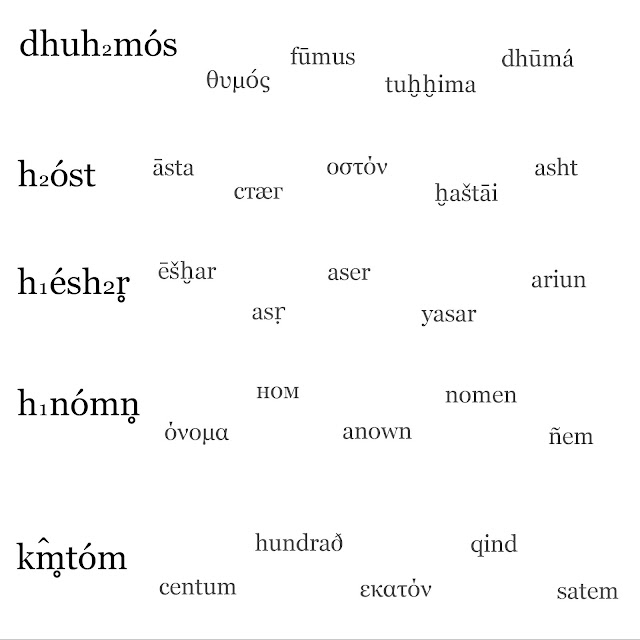
We've made a major update to the Proto-Indo-European dictionary. More than 250 roots have been updated/revised, while ~ 2100 new roots have been introduced. There might be few duplicates, but we're going to merge them soon.
2016-12-03 - The Urartian dictionary is available!

As promised, a browsable Urartian dictionary is now available in the public dictionaries section. We have collected a huge number of sources making this dictionary the most complete you will find online. We still have work to do regarding the commentary, the Hurrian equivalents, the loans from and to Armenian, personal names, toponyms and the affixes.
Follow us
Did you know these words?




